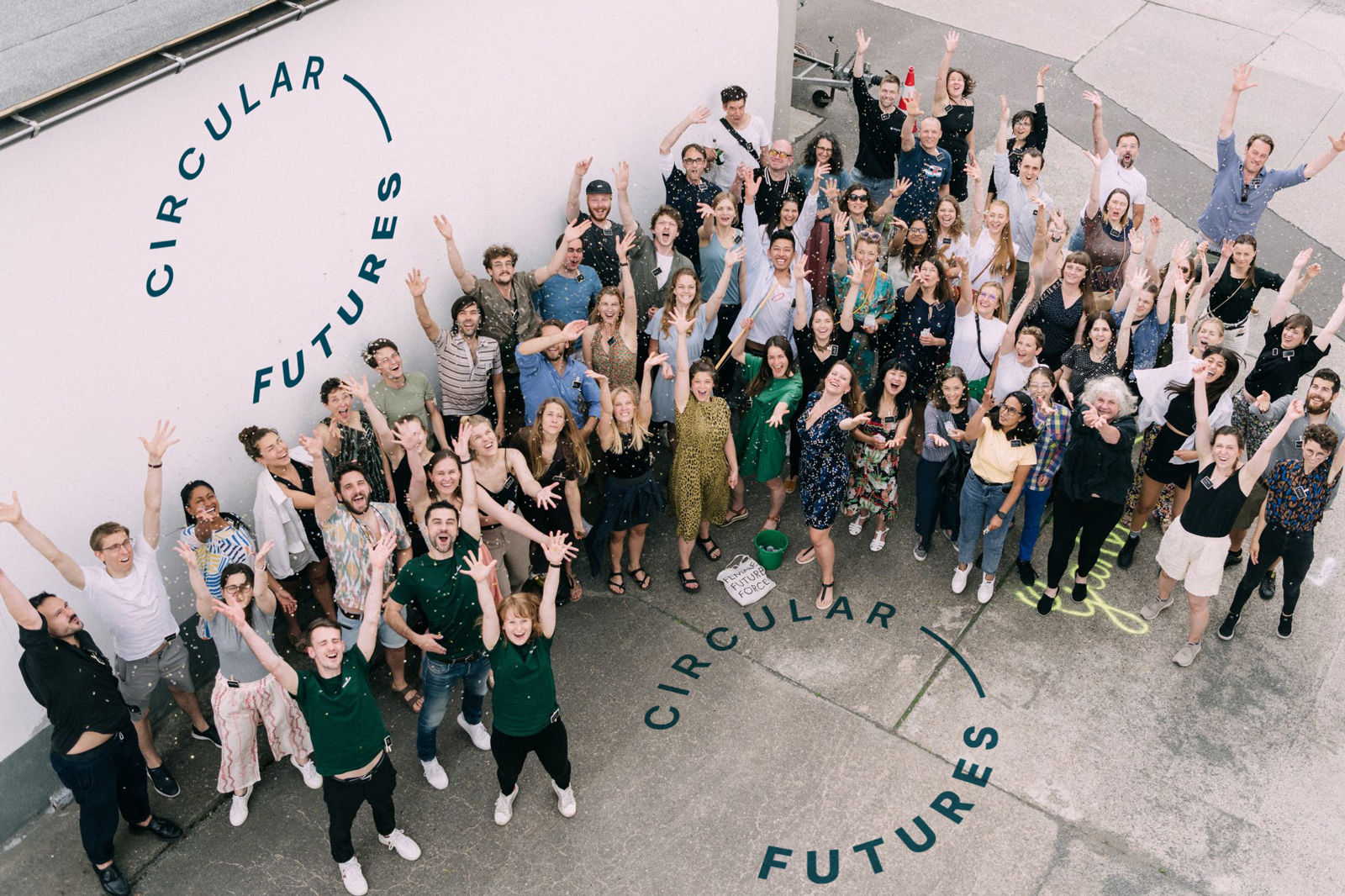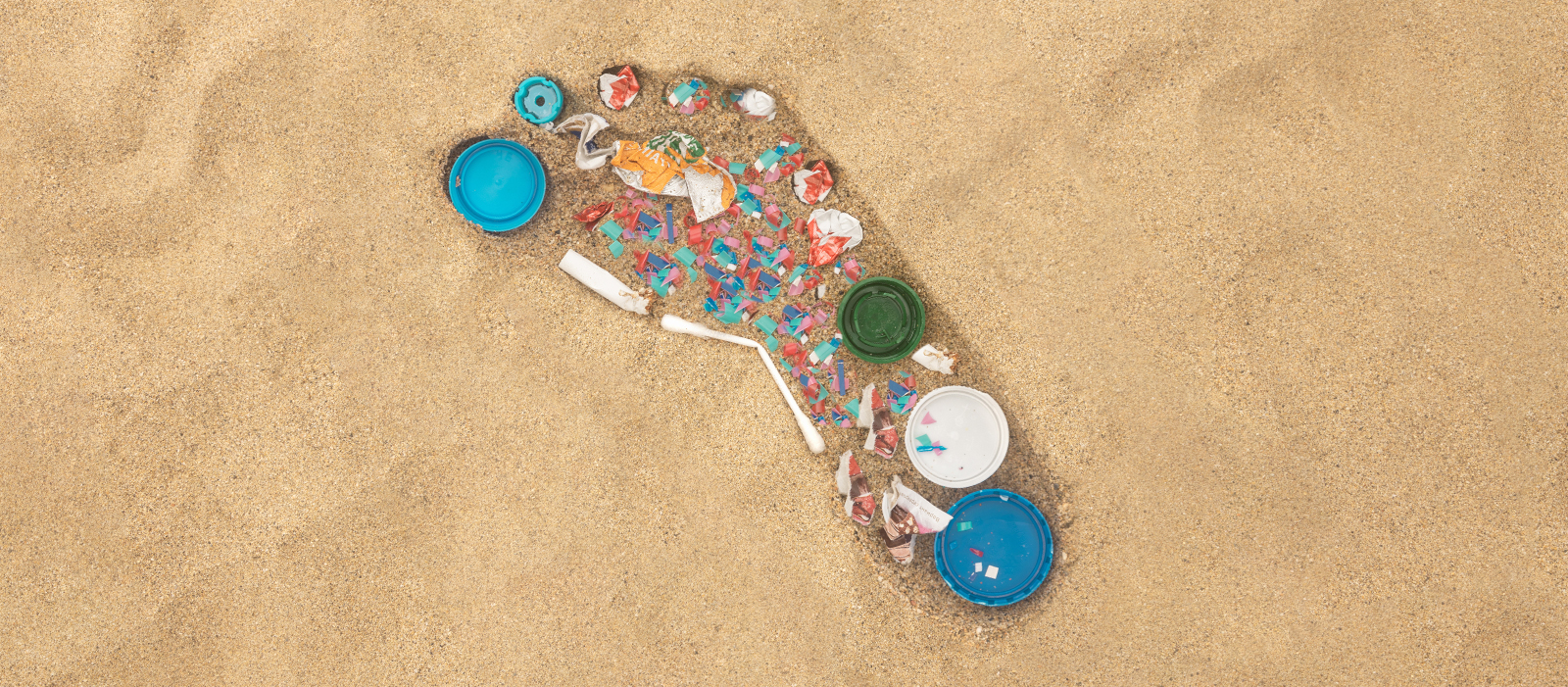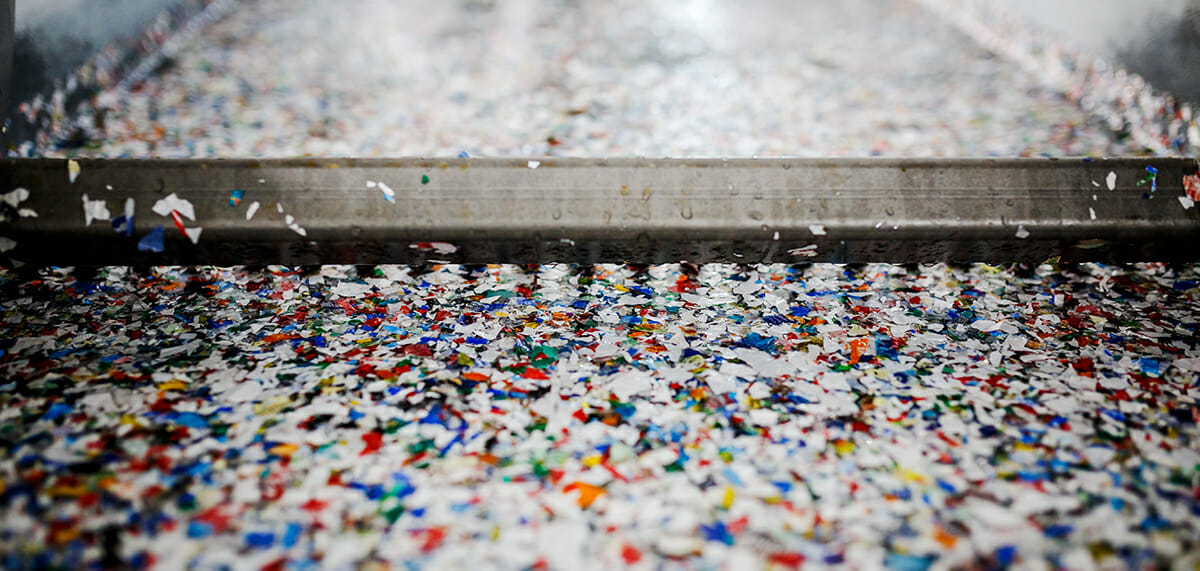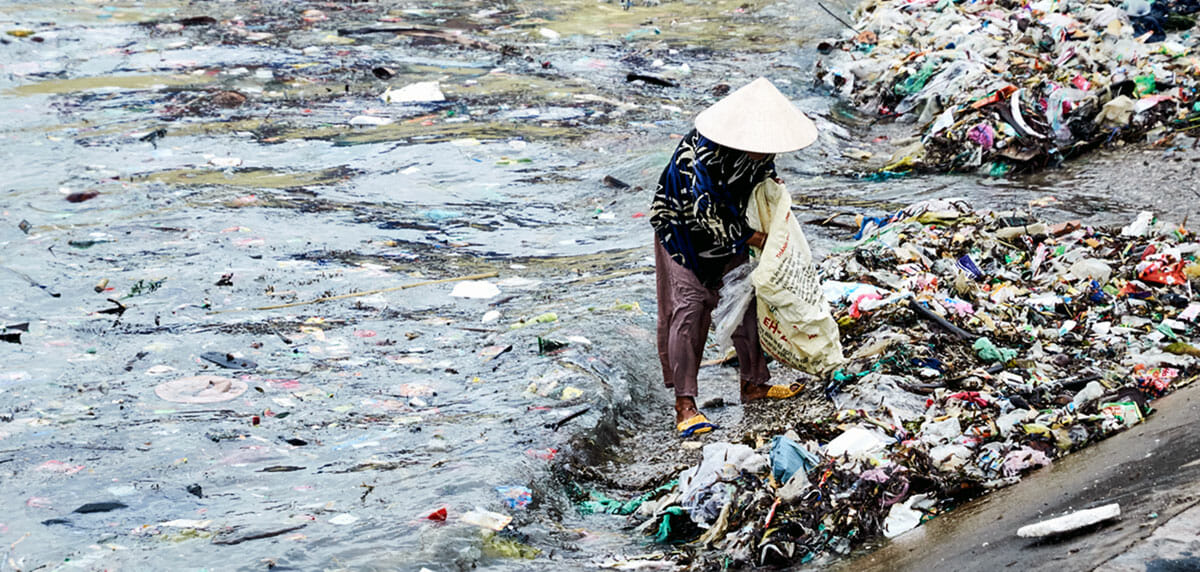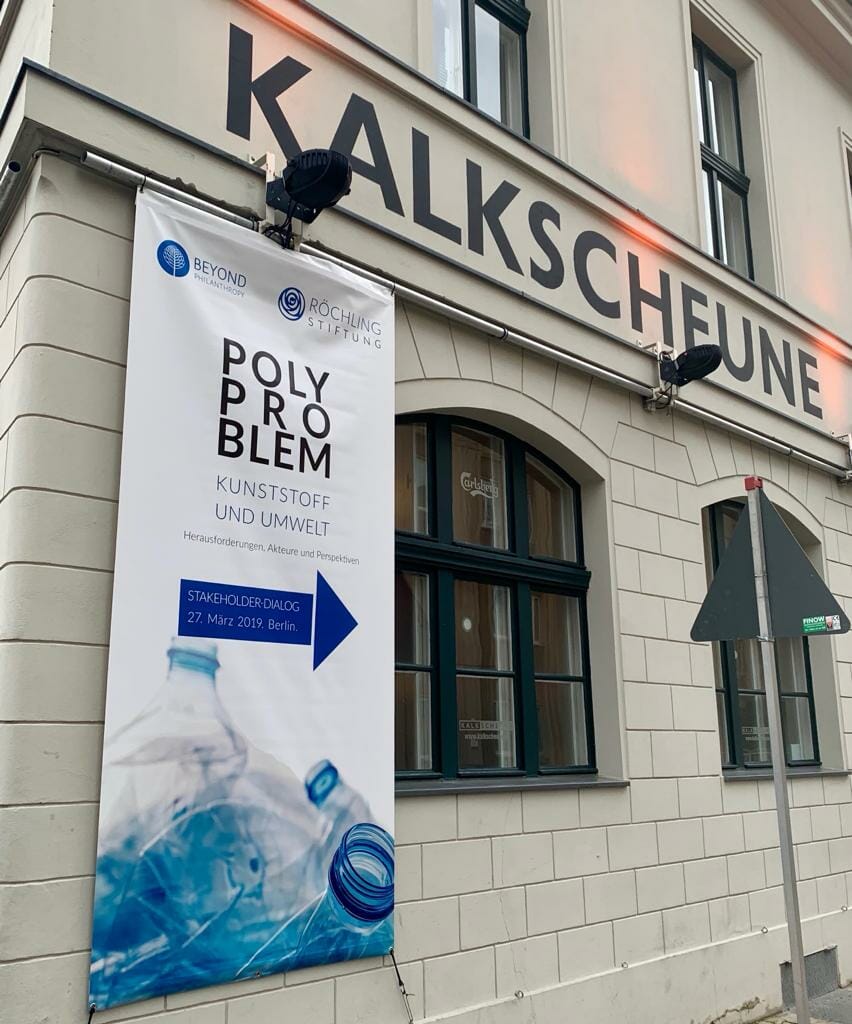POLYPROBLEM-Report The Circularity Code
New POLYPROBLEM report by the Röchling Foundation and Wider Sense The Circularity Code How digitalization helps with the plastic transition… and how it does not The technology is available. However, there is still work to be done on the required willingness to cooperate in order to use it systematically to conserve resources when dealing with plastics. This is the key finding of the new POLYPROBLEM report by the non-profit Röchling Foundation and the consultancy WIDER SENSE. Featuring numerous interviews with experts, the study entitled "The Circularity Code" gets to the heart of the question of how much digital innovations contribute to the fight against plastic waste. It was important to the authors to shed light on all relevant sectors and all parts of the value chain: from digital support in design, the overall ecological assessment of packaging and the digital product passport to new, digital possibilities in waste management and recycling. "The complexity of plastic products means that they go through many stages from production to use and finally to recycling. Each production step generates data that is important for sustainable optimization. If there is no willingness to share this data across the entire value chain, even the best digital tools are of little help," summarizes study co-author Uwe Amrhein. Digital technologies [...]
Circular Futures: The Real Lab for Joint Action
Circular FuturesThe Real Lab for Joint Action We all have to contribute to the development of a functioning Circular Economy: companies, start-ups, science, politics and civil society initiatives that are committed to the careful use of resources with a wide range of projects.Connecting these different groups of actors to develop collaborative solutions is the goal of the Circular Futures program of the Berlin-based social enterprise ProjectTogether.The Röchling Foundation functions as the initial sponsor of the innovation program, which is now also supported by other well-known foundations and companies. "We are certain that the transformation from linear to circular thinking and living will only succeed if innovations from the midths of society come together with business and politics. That is why we are happy to support Circular Futures as a founding partner," says Board of Trustees member Amélie Hauch. Graphic Recording Sommerfest 2022 Circular Futures Circular Futures supports mora than 100 initiatives and startups. Ten of these organizations were able to use grants to further develop and test their most promising solutions for promoting the Circular Economy in a focused way. By means of digital as well as real hands-on events such as the Circular Futures Festival, the team brings together the "circular scene" in learning labs, marketplaces, [...]
POLYPROBLEM-REPORT – Buy your way out
New POLYPROBLEM Report from the Röchling Foundation and Wider Sense "We need to detach ourselves from the current offset logic and overcome our propensity to find quick and simple solutions to complex global problems. The principle of “one ton in – one ton out” does not work because the plastics problem is not just an ecological and economic issue, but also a social one.” These are the words of Nobel Peace Prize winner Prof. Muhammad Yunus in his opening essay of the new POLYPROBLEM report titled "Buy Yourself Out - The Rocky Road to Plastic Neutrality." Offsetting measures still play a minor role in combating the global plastic waste crisis. This is mainly due to a non-transparent market and insufficient standardization. This is the conclusion of the latest study of the non-profit Röchling Foundation and the consultancy Wider Sense. The current report analyzes the opportunities and limitations of so-called Plastic Credits. More and more initiatives and organizations are offering such certificates for sale in order to use the proceeds to finance their activities for the collection and recycling of plastic waste - especially in developing countries. After intensive research in close cooperation with Yunus Environment Hub, the authors of the POLYPROBLEM report arrived at a critical assessment of the situation. "There is no [...]
POLYPROBLEM-Report – Treasure Hunt
The new POLYPROBLEM Report of the Röchling Foundation and Wider Sense TREASURE HUNT Faults and Flaws of the Recycling Market … AND A GLIMPSE INTO A POSSIBLE FUTURE The market for recycled plastics is broken - this is the central finding of the latest POLYPROBLEM topic report. “Treasure Hunt” is the second POLYRPOBLEM topic report of this year. This time, the report was conducted in cooperation with cirplus. Its goal is to not only summarize the situation regarding the recycling of plastics, but also to analyze the reasons that currently cause the plastics cycle to fail and to provide possible solutions for politics and industry. Annually, nearly 400 million tons of plastic are currently produced worldwide. However, less than ten percent consist of recycled material. Hence, it is still a long way to a properly functioning recycling industry. At first glance, the situation appears paradox: recycling companies complain about a lack of sales opportunities. At the same time, product manufacturers and plastics processors complain about a shortage of recyclates sufficient in quantity and quality. Supply and demand do not meet. In discussion with leading experts from business and science, this POLYPROBLEM topic report gets to the bottom of the demanding challenge. One of many problems with recycled plastics is, in fact, [...]
POLYPROBLEM-Report – The Waste of Others
The POLYPROBLEM Report of the Röchling Foundation and Wider Sense The Waste of Others About the responsibility for the flood of plastic in Asia More than half of the plastic waste in the oceans is released into the environment from five Asian countries. And this despite the fact that the emerging and developing countries use much less plastic per capita of their population than the industrialized nations. The reason for the massive emissions is the predominantly inadequate waste management systems in the Global South. The new POLYPROBLEM Report by the Röchling Foundation and Wider Sense takes a close look at the omissions and opportunities. International comparative figures show it clearly: With increasing prosperity, the consumption of plastics is rising. However, waste management in developing regions is not growing at the same pace. If this development continues and the gap widens, the world will only be at the beginning of the plastic problem – regardless of the enormous public attention to the subject. In their new POLYPROBLEM Report “THE WASTE OF OTHERS”, the non-profit Röchling Foundation and the consulting firm Wider Sense have comprehensively examined why it has not yet been possible to establish a nationwide waste management system as a basis for recycling and circular waste management in emerging and [...]
POLYPROBLEM – The Stakeholder Dialogue
POLYPROBLEM – The Stakeholder Dialogue Joining forces. Developing solutions together vs. launching individual projects. Combining the possibilities of business, science and civil society. Guided by the concept of Collective Impact, some 150 experts met at the invitation of Wider Sense (formerly Beyond Philanthropy) and the Röchling Foundation in Berlin, this March. The response to this event exceeded all expectations. Uwe Amrhein, Foundation Manager of the Röchling Foundation warmly welcomed all guests from politics, foundations, education and industry as comrades-in-arms, revealing the major aim of this event: Namely, bringing together structured ideas on how to approach a solution to the POLYPROBLEM of plastic and environment in a first step, followed by the aim to sediment first ideas for joint formats, tools and places all in style of the greater concept of Collective Impact. Uwe Amrhein welcoming the #stakeholders at our dialogue #plastic and #environment, #POLYPROBLEM @BePhilanthropy pic.twitter.com/ViM12fSCB8 — Röchling Siftung (@RoechlingST) March, 27 2019 With his lecture on The Age of Plastics, Dr. Franz Mauelshagen from the University of Duisburg, Center of Global Cooperation Research gave a historic head start into the day. He highlighted the history of an artificial material whose global distribution has become symbolic of an anthropocene - an age in which mankind has become a relevant factor for [...]



